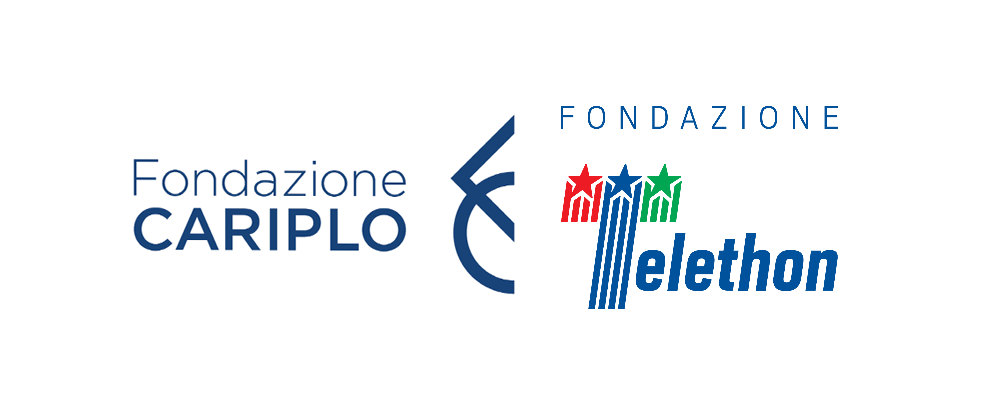
NEWS [30/08/2023]: Due to a typo, the Guidelines for Applicants document has been updated in the section Budget-Direct costs .
PLEASE NOTE [24/07/2023]: the Pharos database has just been updated by the NIH. It is highly suggested to check if your target is still a Tdark.
***********************************************************************
Fondazione Cariplo (FC) and Fondazione Telethon (FT) after the success of the first two rounds, continue their Alliance to invest in a further joint initiative aiming at fostering basic research to support projects focused on aspects of rare diseases that are largely unknown or poorly understood. Thanks to this Alliance, FC and FT are pleased to announce the third round of the “Joint Call for Applications” to solicit projects focusing on the study of genes/gene families, proteins and mRNAs molecules whose function is unknown in rare diseases, of genetic and non - genetic origin.
Basic research, especially in the field of rare diseases, is still an orphan area of investment, but it is also pioneering for the development of applied research in more frequent diseases.
Indeed, the analysis of scientific literature has highlighted the tendency of researchers and funding agencies to focus on a limited portion of the human genome. The most studied genes are not necessarily the most significant: sometimes studying one gene instead of another is simply linked to the timing of its discovery. There are therefore numerous non-coding DNA regions and gene sets - with their relative mRNAs and proteins - whose function is still unknown, but could potentially play an important role within molecular pathways, physiological and pathological mechanisms.
This call is in support of basic research projects focusing on the study of genes/gene families, mRNAs and proteins whose function is unknown in rare diseases[1] of genetic (both monogenic and polygenic) and non-genetic origin. The term unknown refers to targets for which information on the structure, function, interacting molecules, and drugs is not known. Based on the classification developed by the Illuminating the Druggable Genome Knowledge Management Center (IDG-KMC), these targets are defined as Tdark. Applicants must check the classification of the target they intend to study at the link https://pharos.nih.gov/: the chosen target must be classified as Tdark at the Call deadline.
Although the association of the Tdark with the disease must not necessarily have already been demonstrated or published, Applicants must carefully justify the rationale for which the Tdark was chosen in relation to a specific disease.
Eligible projects might focus on the following genetic aspects:
- Genes associated with rare diseases whose function is completely or largely unknown
- One genotype, multiple clinical phenotypes
- Genetic modifiers
- Amyotrophic lateral sclerosis (ALS), as funding opportunities for ALS are available through AriSLA (http://www.arisla.org/), a dedicated Foundation supported by FC and FT
- Non-coding RNA (miRNA, lncRNA etc.)
Preliminary data are not mandatory.
For this Call, both Applications for single- and multiple-center proposals are admitted with a maximum budget of 250,000 Euro. Both leading and partner institutions must be Italian public or private non-profit research institutions.
Applicants holding a previously funded FC or FT grant may apply; applicants funded within the previous rounds of the Cariplo and Telethon Joint Call for Applications are not eligible for this third round of the call Moreover, an Application submitted twice to previous rounds of this Call is not eligible for this third round.
Researchers affiliated to Telethon’s Research Institutes (TIGET, TIGEM, and DTI) are not eligible for this call.
Please note the following Deadlines
Call opening: 28 June 2023 - Forms are available on the Telethon grants portal (http://projects.telethon.it)
Application Submission Deadline: by September 27th,2023.
Scientific Committee
Massimo Pandolfo (CHAIR), MD, Professor of Neurology at the Department of Neurology and Neurosurgery of McGill University (McGill University, Montreal, Canada)
Soren Brunak (VICE CHAIR), PhD, Head of Research and Professor if Disease Systems Biology at the Novo Nordisk Foundation Center for Protein Research (CPR) (University of Copenhagen, Denmark)
Jacques Beckmann, PhD, Emeritus Professor at the University of Lausanne (Switzerland)
Christa Buechler, MD, Head of the Research Group "Molecular and Cellular interactions in diabetes mellitus, obesity and metabolic diseases" at the Department of Internal Medicine (University Hospital Regensburg, Germany)
Erica Davis, PhD, Associate Professor of Pediatrics in the Stanley Manne Children's Research Institute Laurie Children's Hospital, Chicago, USA
Hugo Guerrero Cazares, MD, PhD, Professor of Neurosurgery at the Department of Neurosurgery of the Mayo Clinic (Jacksonville, Florida USA)
Antoni Matilla Dueñas, PhD, Head of Department at Fundació Institut Investigació Germans Trias i Pujol(Fundació Institut Investigació Germans Trias i Pujol)
Nicholas Wood, PhD, Professor of Clinical Neurogenetics, Clinical and Movement Neurosciences (UCL Queen Square Institute of Neurology)
Jean-Yves Masson, PhD, Full professor, Department of Molecular Biology, Medical Biochemistry, and Pathology, Faculty of Medicine (Université Laval, Canada)
Albert R. La Spada, MD, PhD, Distinguished Professor and Vice Chair at the Department of Pathology & Laboratory Medicine and Neurology at the Irvine University UC Irvine, California, USA
Lisa Monteggia, PhD, Barlow Family Director and Professor of Pharmacology at Vanderbilt University, Nashville, USA Vanderbilt University, Nashville, USA
Bradley B. Olwin, Professor of Molecular Cellular and Developmental Biology at the University of Colorado (University of Colorado, USA)
Hans van Bokhoven, PhD, Head and Full Professor of the Unit of Molecular Neurogenetics at Rabdou University, Nijmegen (Rabdou University, Nijmegen, Netherlands)
Paolo Bovolenta, PhD – CSIC-UAM - Universidad Autónoma de Madrid (Spain)
Jonathan Schertzer, PhD – McMaster University, Hamilton (Canada)
Forms
In case of doubts, please contact
the scientific staff at [email protected]
[1] A disease is defined as "rare" when its prevalence, as the number of cases present on a given population, does not exceed an established threshold. In the EU, the threshold is set at 0.05% of the population, or 5 cases out of 10,000 people.
The diseases admitted to this call should be in the Orphanet database (https://www.orpha.net).